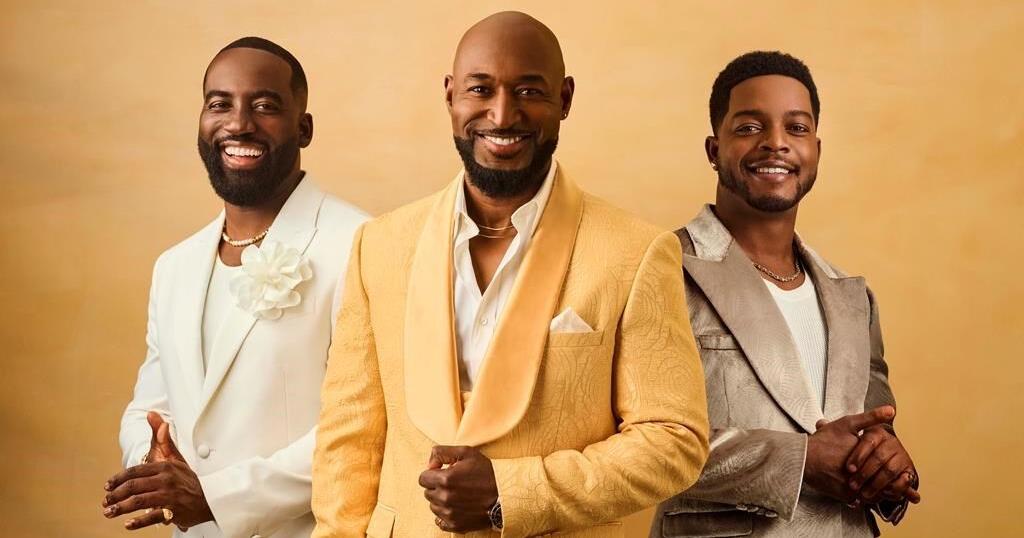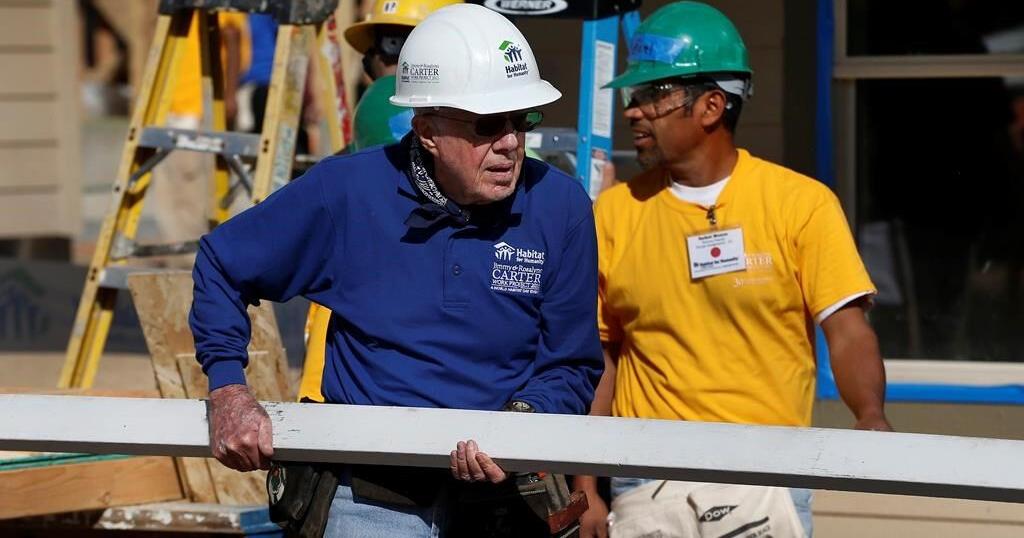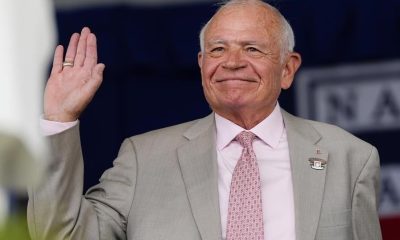TORONTO – Rapper and record exec Kardinal Offishall spoke about the importance of building a foundation for future generations during a heartfelt speech at the Legacy Awards on Sunday, as the fate of future telecasts hung in the balance.
The Juno Award-winning Offishall accepted the Icon Award for his decades of service as Canada’s hip-hop ambassador to the world.
“Anybody who’s ever spent time with me knows that my legacy is about one thing: the decision to build or destroy. Do you have a legacy of tearing others down or building them up, building up their self-esteem, their knowledge of self, their understanding of what it means to be part of a community?” Offishall asked a rapt crowd at Toronto’s History, where the third edition of the event was held.
“So, I say to everybody that sees this and hears this, are you on the side that will continue to build legacies or work to destroy them?”
Offishall was among several honourees at the awards bash hosted by “Bel-Air” star Adrian Holmes celebrating the accomplishments of Black Canadians in film, television, music, sports and culture.
Sunday’s bash concluded a three-year agreement between The Black Academy and CBC to broadcast the awards.
Before the show, Legacy Awards founders Shamier Anderson and Stephan James said they don’t yet know what the future of the show will be.
“We’re hoping that CBC continues to do this because in our community, virtue signaling is a real thing,” Anderson said on the “black carpet.”
“People come in when it’s topical and I think the community is hoping and making sure that the powers that be really keep this going and really put the gas behind it.”
The Toronto actors and brothers opened the lively gala by congratulating local restaurant Randy’s Patties for reopening — a callback to last year’s show when they brought the eatery back for one night. It ended with them handing patties out to the crowd, with Anderson calling himself “the Jamaican Oprah.”
Toronto International Film Festival CEO Cameron Bailey was presented with the Visionary Award for amplifying Black filmmakers and leading a major international arts institution.
Bailey told the crowd he was proud of how much Canada’s Black creative community has grown over the years, shouting out everyone from Drake to filmmaker R.T. Thorne.
“How can we put all this Black, beautiful energy into growing more together? Something bigger than each one of us, together. What we have to do is grow that rollcall. That is the assignment,” Bailey said.
Soulpepper Theatre’s artistic director Weyni Mengesha pocketed the Trailblazer Award for creating inclusive cultural spaces.
During her speech, Mengesha noted that her team refused to take no for an answer when skeptics doubted her critically acclaimed 2001 play “Da kink in my hair” had commercial potential.
“When we couldn’t find a path, we cut our own. And thank you for everybody who joined us on that journey,” she said.
“If any of you storytellers need fuel for your own fight, just remember that we are part of a lineage of Black theatre that goes back to the 1800s.”
Rapper PartyNextDoor, born Jahron Anthony Braithwaite, was named Artist of the Year. He wasn’t able to attend the gala but thanked his team, peers and fans in a video message.
Meanwhile, Ottillia Giralico, known as OT the OG, was named winner of the Fan Choice Digital Content Creator Award.
The gala also paid tribute to several Olympic gold medallists, including hammer throw champion Camryn Rogers and the men’s 4×100 metre relay team of Aaron Brown, Andre De Grasse, Brendon Rodney and Jerome Blake.
Toronto rappers SadBoi and Smiley were among the standout performers of the evening, igniting the stage with an electric performance of their single “Fashion Week.”
Also gracing the stage were Jamaican-Canadian poet d’bi.young, Alberta soprano Neema Bickersteth and Ontario singer-songwriter Morgan-Paige Melbourne.
Anderson and James founded the event in 2021 to shine a spotlight on exceptional Black Canadians.
Before the show, R&B singer Jully Black, who presented Offishall with the Icon Award, said a show like the Legacy Awards is especially important in Canada at a time when the reggae and gospel categories were nearly removed from the Juno Awards before being reinstated after blowback from the music community.
“When I hear gospel and reggae, I hear Black and Black people. So, I don’t even think it’s a question as to why (the Legacy Awards) should stay. That’s just ludicrous. It needs to be here,” she said.
“It’s not like America that has the NAACP Awards, the Soul Train Awards, the BET Awards, the list goes on. We already understand that ‘Junos so white.’ So, ‘Legacy so Black’ is necessary. Period.”
This report by The Canadian Press was first published Sept. 29, 2024.

























